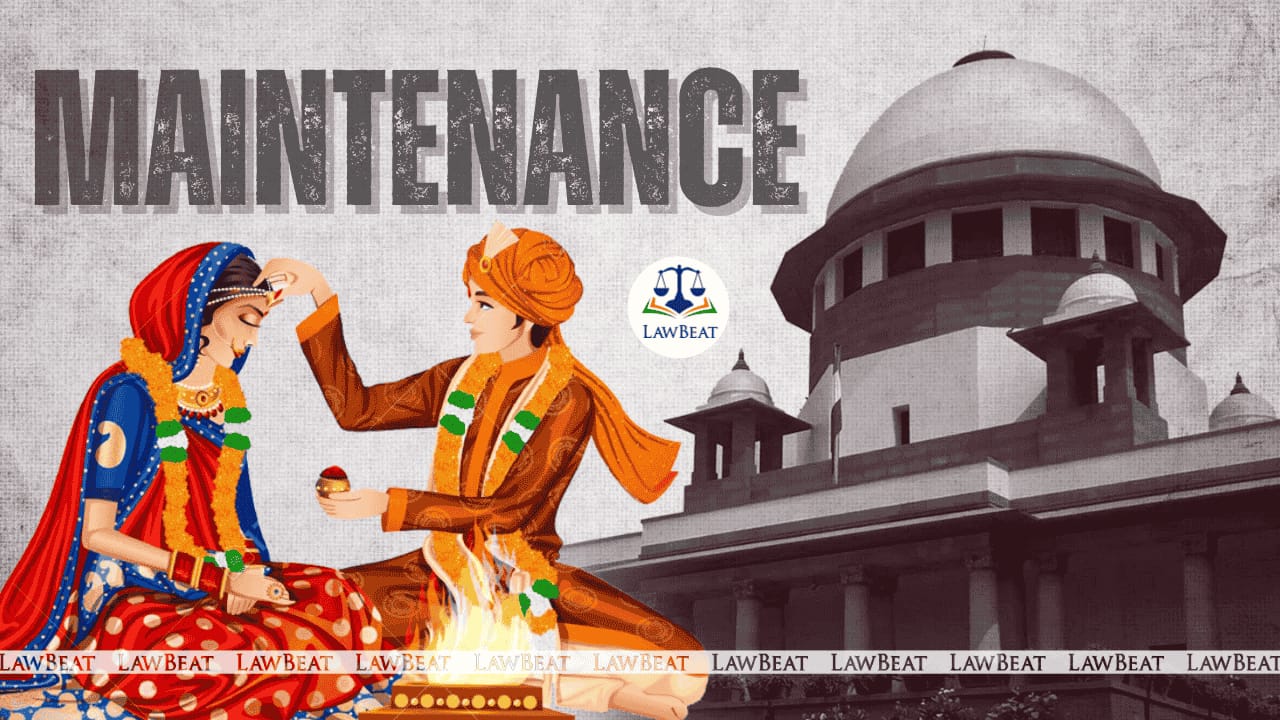Hindu Women’s right to maintenance not by virtue of statute, but found in Shastric Hindu law: SC

Court said the property given in lieu of maintenance to Hindu women would solidify into absolute ownership by action of Section 14(1) of Hindu Succession Act, 1956
The Supreme Court on November 21, 2024, emphasized that a Hindu woman’s right to maintenance, rooted in Shastric Hindu law rather than statutory provisions, must be proper, appropriate, and adequate, enabling her to maintain a standard of living comparable to her previous lifestyle.
Court further underscored that a woman’s right to maintenance serves as sufficient grounds for her possession of property to mature into full ownership if the property is held in lieu of maintenance.
A bench of Justices C T Ravikumar and Sanjay Karol said that the property given in lieu of maintenance would solidify into absolute ownership by the action of Section 14(1) of Hindu Succession Act, 1956.
"In other words, the right of maintenance on its own is apposite for such property to transfer into her sole, unquestionable, and absolute right," the bench said.
The court dismissed an appeal against the Andhra Pradesh High Court's 2009 judgment against a decree of 1990 by Subordinate Judge, Ramachandrapuram.
A suit was filed by one Kallakuri Kamaraju and others (the respondents before the top court) and was decreed in their favour. The appeal filed by Kallakuri Pattabhiramaswamy (the appellants before the top court) before the High Court was dismissed, thereby the findings of the trial court were confirmed.
The dispute pertained to the succession of property between two branches of the same family. At odds were step-brothers. The appellant-defendant, represented through legal representatives, was the son of one Kallakuri Swamy from his union with one Smt Veerabhadraamma, his second wife, and the respondent-plaintiffs were his sons through his marriage to his first wife.
By way of the partition deed of August 25, 1933, Smt Veerabhadramma was given the right to enjoy the said property, and it was stipulated therein that after her death, the respondent-plaintiffs and appellant-defendant would be entitled to half share each of the property.
Smt Veerabhadramma passed away on February 6, 1973. In accordance with the partition deed, the property was divided amongst the two branches of successors of Kallakuri Swamy. A dispute, however, arose leading to a suit being filed.
In the plaint, it was alleged that the respondent-plaintiffs demanded partition. However, it was repeatedly put off and evaded by the appellant-defendants. The latter has contended that Smt. Veerabhadramma by registered Will of December 30, 1968 bequeathed the scheduled properties to one of them (2nd defendant in the Original Suit). Such contention was denied, stating that her rights did not augment into absolute rights and that she had the right to enjoy the scheduled properties for life, as given under the registered partition deed.
On the other hand, in the written statement by the appellant-defendants, it was submitted that the properties were given to Smt Veerabhadramma taking into consideration her right of maintenance. She was in possession and enjoyment of the said property till her death in 1973. The rights so vested in Smt Veerabhadramma were enlarged into absolute rights by application of Section 14(1) of the Hindu Succession Act, 1956. She then executed a Will granting enjoyment to the 2nd defendant, namely, Kallakuri Veera Raghavamma, for her life and vested the same in defendant Nos 3 to 7 and the husband of defendant No 8.
It was argued that the respondent-plaintiffs could not claim any right according to the partition deed.
The trial court concluded when the partition deed was executed in 1933, there existed no legal right in favour of Smt Veerabhadramma. The Hindu Women’s Right to Property Act, 1937 and the Hindu Women’s Right to Maintenance and Separate Residence Act, 1947 are both subsequent legislations. Prior thereto, it was only a moral and personal obligation of a husband or the male member of the family to maintain the females, the trial court held.
It also held the property was not given to her in recognition of any preexisting right.
It was also concluded that Smt Veerabhadramma had no right to execute a Will in favour of her daughter-in-law (2nd defendant in the Original Suit). She did not acquire absolute rights under the Hindu Succession Act, 1956, and as such the property would still vest with the respondent-plaintiffs as per the partition deed of 1933.
Upon appeal by the appellant-defendants, the High Court held that if the property is given to a widow under a deed/instrument/partition deed/settlement deed/Will or Award in recognition of her Sastric right to maintenance or arrears of maintenance then that would be her absolute property after HSA, 1956 came into force because that is in recognition of her right to maintenance.
The question in the appeal before the apex court was whether the appellant-defendants were entitled to the entire property, in line with the position that Smt Veerabhadramma, by virtue of the Hindu Succession Act of 1956, would have absolute rights over the subject property and, therefore, be able to bequeath the same by way of Will to her successors.
In the case, Smt Veerabhadramma was given the absolute right to her property, qua 2.09 Cents of land, and a life interest in respect of 3.55 Cents of land.
The top court held that the facts were clear that Smt Veerabhadramma's absolute rights extended only to 2.09 Cents.
" (In)The partition deed of 1933, it has been held, is clear that 3.55 Cents of land would be enjoyed by Smt. Veerabhadramma as a life interest and thereafter would devolve upon the two lines of succession, i.e., the sons of late Kallakuri Swami through his first wife and also his second wife," it clarified.
Accordingly, court dismissed the appeal before it.
Case Title: Kallakuri Pattabhiramaswamy (Dead) Through LRs Vs Kallakuri Kamaraju & Ors
